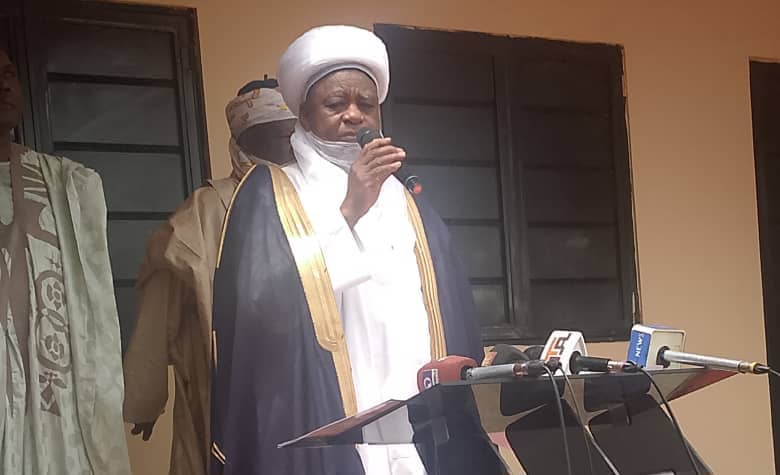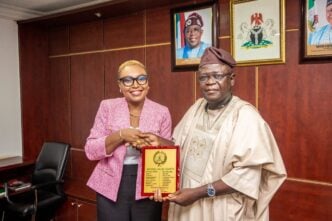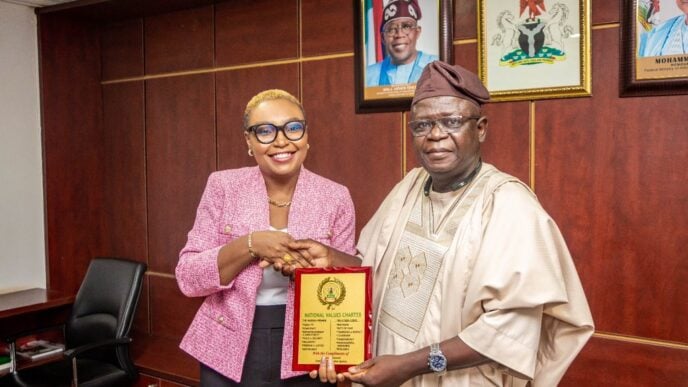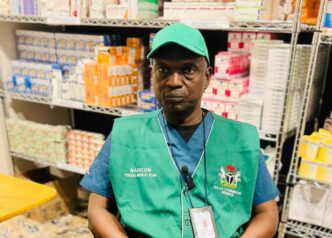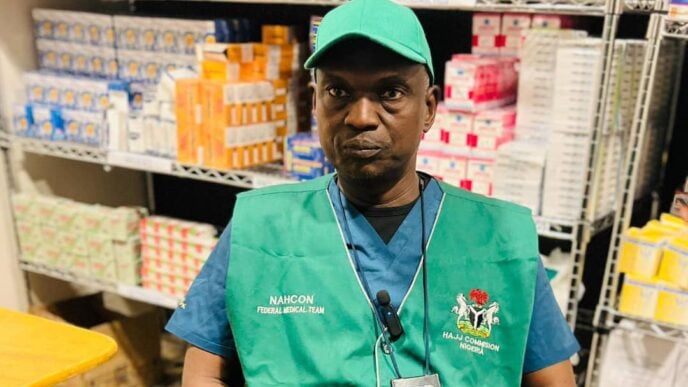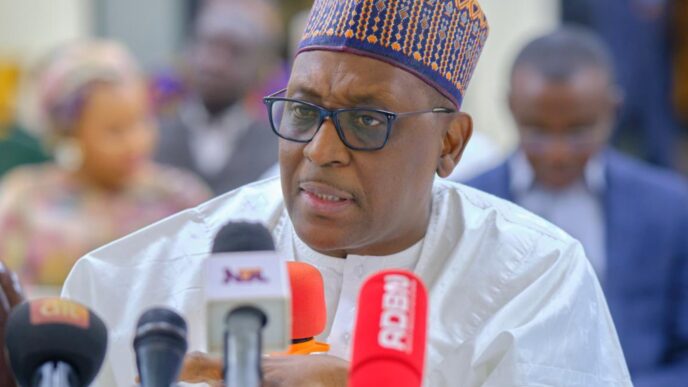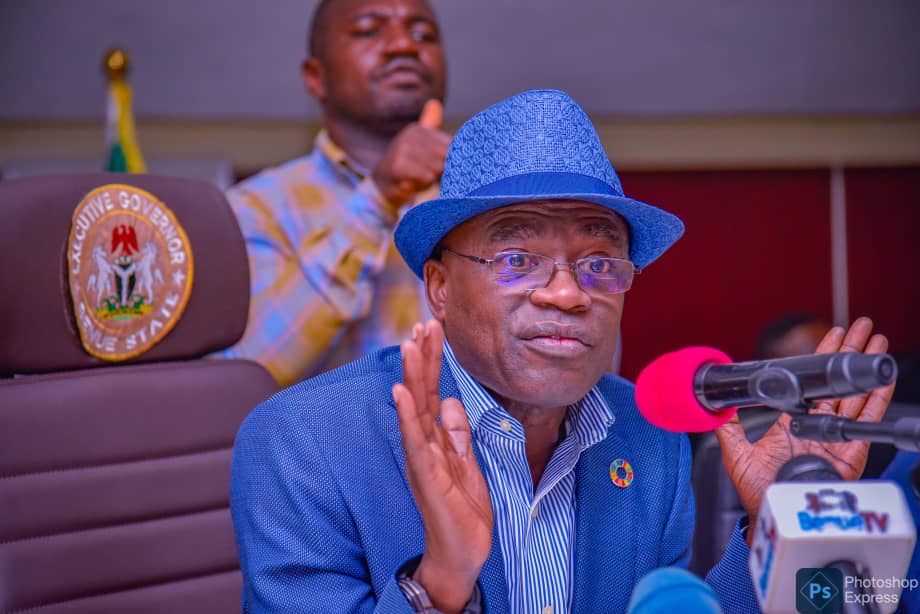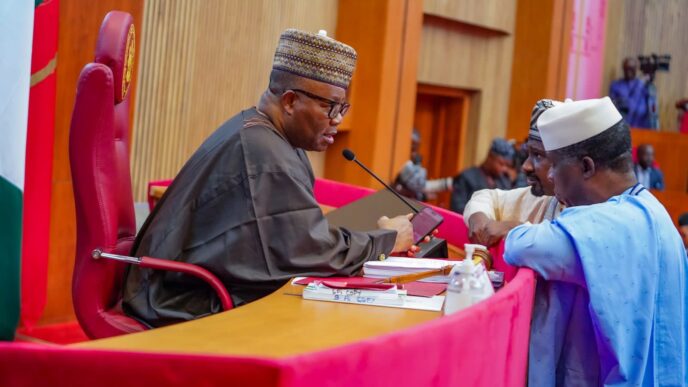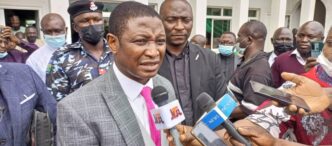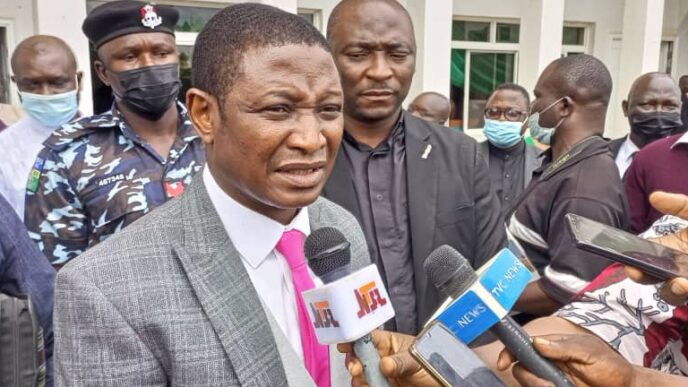Muhammed Abubakar III, the Sultan of Sokoto, says the problems facing Nigeria are surmountable if citizens work together.
The Sultan spoke on Saturday at the inauguration of the Bola Ahmed Tinubu Darul’Ilm Centre for Islamic Studies in Kaduna.
Tosin Ajayi, the director general (DG) of the Department of State Services (DSS), built and donated the centre to the Danbushiya community in Kaduna.
Sultan said Nigeria is not the only country going through difficult times.
Advertisement
“We believe in our country; we believe in our ability to surmount all problems,” he said.
“When you have challenges and you overcome those challenges, they make you move forward.
“We are going through difficult times in this country, but we are not the only ones.
Advertisement
“There are so many countries going through difficult times, but we believe that there are no problems that cannot be surmounted.”
The Sultan added that continuous interaction among Nigerians will reduce the problems of religious differences to the barest minimum.
“The coming together of people of different faiths and ethnicities will help bridge the gaps of disunity and de-emphasise the problems of this country,” he said.
“All we need is to keep on praying for our leaders. Pray for our president, governors and local government chairmen.
Advertisement
“The problems of this country are not insurmountable. So let’s have hope that by coming together like we have done today, we will overcome our problems.”
He described the school as very special “in the sense that we are all gathered here to make history”.
“It is built for orphans, people who don’t have parents. We are the parents of such orphans, and I believe what the DG of DSS has done is good.”
The Sultan also urged Nigerian against allowing religion to create hatred among them.
Advertisement
“Religion is a personal thing; let’s not take religion to the level that it will bring hatred between us,” he said.
“We are all created by Allah, and He doesn’t make mistakes… Let’s not allow our diversity to divide us.”
Advertisement
He commended the DG of DSS for building the school and suggested that it be named after President Bola Tinubu for giving Ajayi the opportunity to serve.
“I believe the mentor of the DG of the DSS is Mr President. He made an excellent choice in the appointment of the DG in the history of this country,” he said.
Advertisement
The DG has been reaching out to us, solving a lot of problems… “
The DSS boss, represented by Ahmed Zalmar, a retired director of the service, said he began nursing the idea to build the school during his years in Kaduna.
Advertisement
The law setting up the DSS, he said, empowers the secret police to prevent five major threats to internal security, including espionage, insurgency, sabotage, subversion and terrorism.
As a trained security officer, the DSS boss said he identified reducing discontent in the populace as a powerful counter-subversion strategy.
Ajayi said he identified education as a key method of dousing discontent.
“The latest of such is the building and donation of the well-furnished modern Islamic school with support from my friends and associates, which also reflects the core mandate of President Tinubu,” he said.
“It is also part of my policies to improve the nation’s internal security architecture through conventional and non-conventional engagements.”
Ajayi stressed that he chose to channel the support for the well-being of vulnerable and needy groups through several social projects, including the building of schools, places of worship and sports centres, among others.
The DG clarified that he had never used operational funds or budgetary provisions for the philanthropic gestures aimed at winning the hearts of the vulnerable population towards defeating insurgency and terrorism.
“I have always channelled parts of corporate social responsibilities and other financial support from stakeholders for such purposes,” he said.
Wale Edun, the minister of finance, emphasised the importance of education to Nigeria’s future.
Edun praised President Tinubu’s support for faith-based education initiatives and school feeding programmes.
“By 2050, 25 percent of the global workforce will be African, with many from Nigeria,” the minister said.
He stressed that, in spite of challenges, progress is evident in economic growth, increasing foreign reserves, stabilising inflation, and decreasing food and energy prices.
Dignitaries at the event include Hadiza Balarabe, deputy governor of Kaduna, who represented Uba Sani, the governor, and Dahiru Liman, speaker of the Kaduna state house of assembly, who represented Tajudeen Abbas, the speaker of the house of representatives.
Others are Ahmed Audi, commandant of the Nigerian Security and Civil Defence Corps (NSCDC), the Emir of Zazzau Ahmed Bamalli, serving and past DSS directors, among others.
